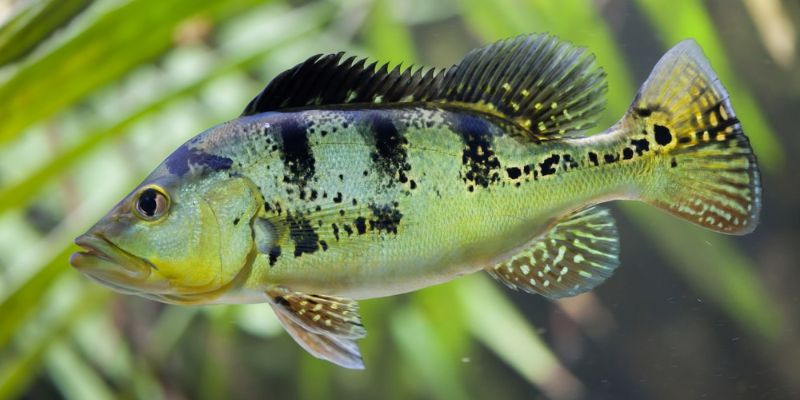This is our 2023 update and complete evaluation of keeping peacock bass in an aquarium. Here at fishtanklovers.com, we take great pride in giving you the tools you need to care for your peacock bass successfully in an aquarium. We will discuss everything from providing a suitable habitat for your peacock bass to providing for its nutritional needs. This manual will provide the information you need for “Peacock Bass Aquarium Care Review in 2023”, regardless of your expertise with aquariums.
Peacock Bass Aquarium Care Review in 2023
Installation of the Tank
It’s important to replicate the conditions of the aquarium’s natural habitat as nearly as possible when housing peacock bass. Here are the most important things to think about:
Dimensions of the Tank
Because of their high energy and strength in the water, peacock bass require a large tank. A single peacock bass requires a tank that is at least 75 gallons in size. It is recommended, however, that a larger tank be used if many bass or larger specimens are to be kept.
Filteration and Reuse of Water
The wellbeing of your peacock bass depends on your ability to keep the water quality at a high standard. To get rid of trash and poisons, you need a good filtration system and to change the water frequently. Furthermore, a strong water pump or circulation system will simulate the natural currents present in their endemic regions.
Substrate and Embellishing
Peacock bass favor sandy or gravelly bottoms in their natural habitats. Create hiding places and improve the aquarium’s aesthetic with the help of rocks, driftwood, and live plants. Be careful what you plant, though, because peacock bass are known to uproot gardens.
Water Conditions
Keeping the water in which your peacock bass live clean and clear is essential to their health. Here are the most important variables to consider:
Temperature: Peacock bass are most successful in warm climates. To simulate their natural environment, the water should be kept between 78 and 82 degrees Fahrenheit.
pH status: Peacock bass thrive in water with a pH between 6.5 and 7.5. To keep your fish in a stable habitat, you should check the pH levels frequently and make adjustments as needed.
Calorie Content of Water: Peacock bass thrive in water that is slightly hard, between 8 and 12 dKH. You can achieve this by altering the mineral composition of the water or by utilizing water conditioners.
Concentrations of Ammonia, Nitrite, and Nitrate: Check the ammonia, nitrite, and nitrate levels in the water on a regular basis with a good aquarium test kit. Ammonia and nitrite are both deadly to fish, so make sure they never rise beyond zero. If you want to avoid health problems, keep the nitrate level below 20 ppm.
Feeding
Feeding your peacock bass a balanced diet is crucial if you want to see them thrive. These carnivorous fish devour their food, therefore feeding them a wide variety of foods is essential to their health.
Frozen and Fresh Meals
Feeder fish, shrimp, crickets, and worms are all great live and frozen feeding options for peacock bass. They get the key nutrients they need from foods that resemble their natural prey. In order to avoid malnutrition, you should provide a number of food choices.
Commercially Produced Pellets and Food
Predatory fishes should also be supplemented with high-quality pellets or commercial fish feeds designed for predatory fish. To satiate their hunger, you should seek out foods that are rich in protein.
Tankmates
When choosing tankmates for your peacock bass, keep the fish’s aggressive tendencies and overall size in mind. You shouldn’t keep them alongside frightened or weak fish. Choose instead more imposing, hardy plants that won’t back down easily.
Conclusion
In conclusion, keeping high water quality in an aquarium with peacock bass demands careful attention to detail. You can make your peacock bass happy by simulating its natural surroundings, feeding it a healthy diet, and giving it compatible tankmates.


plinko
plinko
Book of Ra
slot gallina
aviator game online
book of ra
plinko